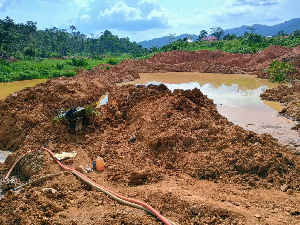Advocacy for Social Inclusion and Girls Education (ASIGE), a Non-Governmental Organization, has enrolled 23 out-of-school girls in the Bongo District of the Upper East Region into vocational training.
This is in addition to six girls already enrolled by the NGO in 2020, making the number of girls learning various skills in cloth weaving and dressmaking among others, 29.
Apart from the weaving and sewing machines and the necessary materials including uniforms and notebooks needed to learn the trade, the NGO also paid for the full cost of the training period of three years.
At a brief ceremony to present the items to the beneficiary girls and hand them over to their master trainers, Ms Dorcas Apoore, the Executive Director of ASIGE, noted that the project had financial support from the Paul Hodges Trust, an International Organization based in the United Kingdom.
She said many girls in the district were forced to get married early due to extreme poverty which had over the years affected the development of the district.
Ms Apoore noted that the training was to support the young girls with the needed knowledge to create jobs for themselves and employ others.
It would further enable the girls who are unable to acquire formal education to be self-reliant and contribute to improving their livelihoods.
The Executive Director disclosed that since the establishment of the NGO in 2014, it had carried out several economic empowerment projects geared at addressing challenges facing women and girls.
She said ASIGE had undertaken sensitization on sexual and reproductive health rights in several schools and presented over 2,000 sanitary pads to school girls in both Upper East and Upper West Regions.
Ms Apoore disclosed that her outfit had further empowered women in basket weaving in five communities including Sumbrungu, Asimsum, Bolgatanga-Soe, and Anateem in Bolgatanga Municipality and Bongo and Vea in the Bongo District.
“We started with 30 women in these communities but we have 429 women and it is our aim that their livelihoods would be improved and contribute to reducing poverty, achieving gender equality and the Sustainable Development Goals,” she added.
Pognaba Christina Nge, the Paramount Queen mother of the Bongo Traditional Area, commended ASIGE and its sponsors and said the project would help empower young girls who would have been forced into marriage due to poverty.
She commended the master trainers for engaging the apprentices at a reduced fee and admonished them to treat the trainees as their children and imbibe in them the skills, knowledge, and values needed.
Ms Florence Ayivoore, one of the beneficiary trainees, expressed gratitude to ASIGE and its partners for the support and said it would help them to build their capacity to fend for themselves and make them independent.
She pledged on behalf of the other trainees to be submissive to their master trainers and learn the trade to ensure that more support came to the district for other vulnerable girls.
Regional News of Monday, 26 April 2021
Source: GNA













